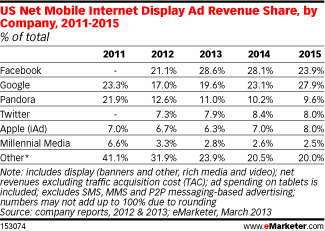How IDEO brings design to corporate America
April 23, 2013 Leave a comment
How IDEO brings design to corporate America
By Dinah Eng @FortuneMagazine April 11, 2013: 8:06 AM ET
David Kelley in IDEO’s Palo Alto workshop
You may not know the design firm IDEO (pronounced EYE-dee-oh), but chances are you know its work. If you’ve used an Apple mouse (IDEO fashioned the company’s first, in 1980), swept with a Procter & Gamble (PG, Fortune 500) Swiffer (it collaborated on the hit), or even stood in line at an airport recently (the firm has worked with the Transportation Security Administration to make the process friendlier), you’ve felt the legacy of David Kelley. He founded IDEO in Palo Alto in 1978 and built it into a global operation with 600 employees and $130 million in revenue (he declines to divulge profits). IDEO brings a human-centered approach to products, services, and organizational concepts for the likes of Samsung, Eli Lilly (LLY, Fortune 500), and Bank of America (BAC, Fortune 500). Kelley, 62, is also Stanford University’s resident design Yoda. The avowed “variety junkie” is proud that IDEO does everything from designing the ideal home for wounded soldiers to helping Elmo teach kids good behavior via a mobile app. His story:
I grew up in Barberton, Ohio, where my father was an engineer at Goodyear and my mother was a housewife. It was a typical Midwest upbringing, and I wasn’t really into college preparatory stuff. What was exciting to me was taking apart the car or the washing machine.
In 1973, I got a BS in electrical engineering from Carnegie Mellon University and went to work forBoeing (BA, Fortune 500) in Seattle, designing things for the interior of the 747. When I found out about the Stanford Product Design Program, I became interested in the human-centered side of technology, but didn’t think I’d get into the program. So I moved to Dayton and worked for National Cash Register (NCR,Fortune 500), designing new banking terminals, until I found out I was admitted.
Going to the Stanford program was a perfect fit. I love trying to understand what people want, what they value, and designing something for them. I graduated in 1977 with my MS in engineering and product design, and discovered that I really liked teaching. In 1978, I went to my mentor, professor Bob McKim, and said I wanted to keep teaching and I wanted to start my own company. He introduced me to Dean Hovey, who was studying at Stanford, and we started a company called Hovey-Kelley Design. A couple of professors who had their own companies in Silicon Valley gave us our first projects — designing a reading machine for blind people and a medical device called a differential [blood] cell counter.
Soon after Dean and I started our company, another Stanford colleague introduced us to Steve Jobs. We ended up doing a lot for Apple (AAPL, Fortune 500). They were technologically focused, and we focused on the human side. We’d ask [with the first Apple mouse], should you use the mouse with your fingertips or slide it like a bar of soap? Once we started doing Apple products, people wanted to know who we were.
Back then, we were paying about $300 a month for three offices. I remember flinching when I signed a 10-year lease because I still owed on student loans and I had a negative net worth. I had no interest in calculating revenue, and still don’t. We charged $25 an hour and had six employees. Half the time we worked, and half the time we didn’t. All I cared about was how much we were paid per hour, and if we had enough to keep everybody busy. Read more of this post









